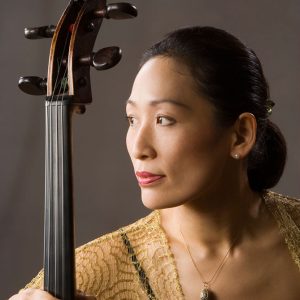
Putting Your Best Foot Forward in Auditions
Yeesun Kim
Let’s face it. A musicians life is full of auditions. Even when you might not be taking a formal audition, each concert may turn out to be an audition for your next project.
For many students, February in particular is a busy, stressful month filled with college auditions, summer festival auditions, recital juries and so forth.
When you are a beginner, auditions generally represent a relatively encouraging nudge of “Do your best.” Later, they have greater consequences, and dealing with the pressure can become quite torturous. Some are more at ease than others, but I believe it is safe to say that auditions are not activities anyone particularly enjoys doing. Of course listening to auditions is not so easy either. One is asked to sit through 7-8 hours per day of 12-15 minute auditions of mostly same repertoire. Even with the best of intentions, this can be fatiguing.
But once in a while someone walks in and plays, and it is like a new day has started. The person has a sparkle in their eyes and their playing is totally captivating from the first note. In fact, sometimes they convey this energy even before they start playing. How does this happen?
A few things come to mind:
Self confidence, self respect, clarity of mind, sense of purpose, graciousness.
So what are some of the small things that communicate these qualities? It is highly unlikely for a person with self confidence not to acknowledge others upon entering the room and make eye contact. It is highly unlikely for a person with self respect not to gauge their steps carefully and carry their instrument in a relaxed manner. It is also highly unlikely for a person with clarity of mind not to have their music, rock-stop, tuning of instrument in order or to drag in unnecessary items such as rags, dampits, rosins, metronomes (you get the picture). It is again highly unlikely for a person with sense of purpose to be making small talk and jokes in such circumstances. And lastly it is really really unlikely for a gracious person (who is in a sense hosting their own short performance) to be over or under dressed. Examples of inappropriate dress might be attire suitable for proms, beach parties or casual family gatherings.
How well one plays in the audition matters most, but there is a much larger connection being made as well. We make a line between past and the future through the present. As a musician, as an artist, each of us has committed to pursue, relay, and interpret the miraculous meaning of life through the music we make. This is a grand commitment that reaches in to our innermost being. When we play, it is not just about what we can say now but also what we are capable of evoking in others that has lasting values. As an auditioner, I find my attention responds to the potential of an individual who can develop as a whole person. The audition is a window into a future relationship that may be cultivated and nurtured for many years. And “YES” one can represent oneself wholly in just 12-15 minutes!
Subjects: Auditions
Tags: anxiety, Auditions, cello, cellobello, clarity, commitment, communication, confidence, connection, control, energy, intentions, Interpretation, Kim, personality, potential, pressure, stress, tuning, Yeesun
